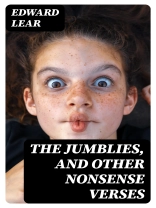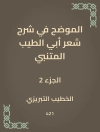In ‚The Jumblies, and Other Nonsense Verses, ‚ Edward Lear crafts a whimsical tapestry of nonsense poetry that invites readers into a fantastical realm where absurdity reigns. The collection, characterized by its playful rhythms and surreal imagery, exemplifies the Victorian fascination with nonsense literature, echoing themes of adventure and the eccentricity of human experience. Through his distinctive limericks and lyrical verse, Lear elevates nonsense to an art form, blending humor with a subtle critique of societal norms and conventions, as seen in the endearing tale of the Jumblies — a peculiar group who embark on a curious journey aboard a sieve. Edward Lear, a multifaceted artist known for his contributions to literature and illustration, emerged from a background that embraced creativity and eccentricity. Often considered a pioneer of the nonsense genre, Lear’s works reflect both his personal experiences and the cultural milieu of 19th-century Britain. His unique perspective was shaped by a childhood of artistic exploration and a deep appreciation for the absurd, which manifests vividly in this collection. Lear’s life, marked by travel and encounters with diverse cultures, is mirrored in the imaginative landscapes of his poetry. For readers seeking a delightful escape into the imaginative and the absurd, ‚The Jumblies, and Other Nonsense Verses‘ is an essential addition to both children’s and adult literature. Lear’s ability to blend nonsense with deeper truths encourages joyful engagement with language and invites meaningful reflection on life’s peculiarities. This book stands as a testament to Lear’s genius and remains a cherished classic that continues to enchant and inspire.
Über den Autor
Edward Lear (1812-1888) was an English artist, illustrator, musician, author, and poet, now most widely recognized for his literary nonsense in poetry and prose, a genre that he helped popularize in the 19th century. Lear’s contribution to the world of children’s literature includes his most enduring work, ‚The Book of Nonsense‘ (1846), which set the standard for the limerick form. He further developed his distinctive style in works such as ‚The Jumblies, and Other Nonsense Verses‘ (1871), where he invites readers into a whimsical world, accomodating a set of absurd and delightful characters, traversing landscapes that defy conventional logic. Lear’s verses, characterized by their playful language, whimsy, and often nonsensical nature, also hint at a deeper sense of melancholy and solitariness, reflecting perhaps his own life’s experiences as an epileptic and an asthmatic, living much of his life as a bachelor. While his contemporaries celebrated him for his literary contributions, Lear also earned respect as a landscape painter and as an illustrator, making contributions to various works including ‚Illustrations of the Family of Psittacidae, or Parrots‘ (1832). His inventive words and peculiar plots paved the way for future literary nonsense and have influenced subsequent writers like Lewis Carroll and many more. Lear’s ability to blend humor with poetry has secured his place as a stalwart of children’s literature and as an important figure in Victorian literature.












